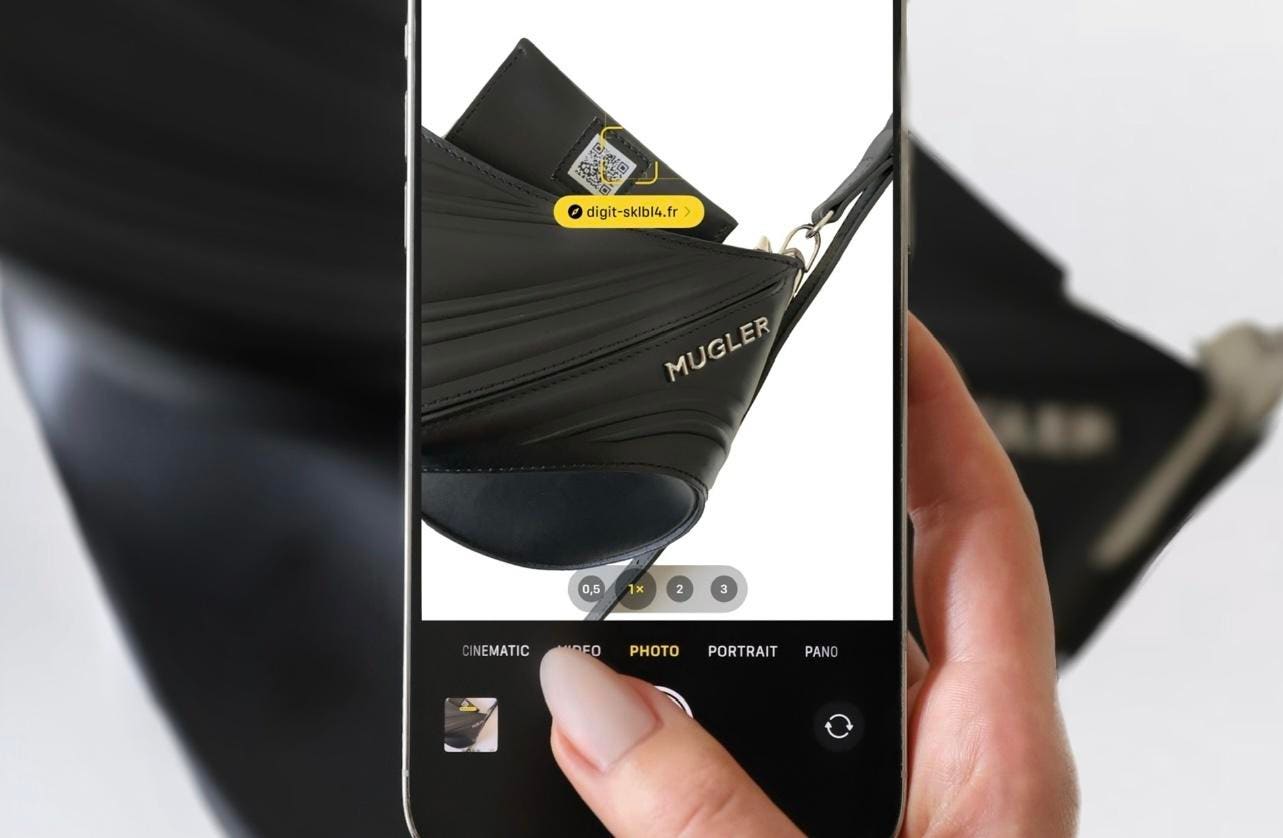Paris based luxury fashion house Mugler is partnering with Web3 solutions provider Arianee on digital product passports for a selection of its handbags.
The program, geared toward consumer loyalty and engagement, alongside EU regulation compliance, will begin with the Spiral Curve 01 and 02 bags which debuted at Mugler’s Paris Fashion Week show in January.
The blockchain-backed product passports offer ownership validation and tracking, alongside transferability should the products be resold. According to the brand, purchasers will experience “a new level of engagement.” The bags will serve as “new digital touch points” affording access to exclusive content and experiences including behind-the-scenes insights, event invitations and early access sales.
“Boldness, creativity, and innovation are part of Mugler’s DNA,” Mugler Managing Director Adrian Corsin said in a statement. “We believe digital product passport technology offers endless opportunities to build a more direct, interactive, and truly personalized relationship with our clients.”
To receive their passport, purchasers scan a QR (quick response) code inside their bag and enter a 2FA (two factor) identification code. The move also anticipates forthcoming EU regulations and addresses the growing demand for transparency, turning their handbags into digital engagement platforms.
“Digital product passports linked to a physical good will play an instrumental role in fashion and luxury brands’ circularity, compliance and engagement strategies,” stated Pierre-Nicolas Hurstel, CEO and Co-founder of Arianee.
“Developing this project with Mugler is a fantastic opportunity to show how digital product passports can push the boundaries of innovation and build new ways to interact with clients and create business opportunities beyond the constraint of regulation,” he added.
Similarly LVMH Group and OTB Group brands have created on-chain certificates of authenticity across a number of categories including garments from Loro Piana, high jewelry by Louis Vuitton and accessories such as Maison Margiela’s Tabi footwear—all via the Aura Blockchain Consortium. The certificates are accessible via a combination of QR codes and NFC (near field communication) chips—in the case of the Maison Margiela Tabis.
Aura’s SaaS (software as a service) solution was used for Christian Dior’s connected B33 sneakers collection, allowing owners to access their shoes’ certificate of authenticity and engage with its production process. Louis Vuitton’s Via Treasure Trunk NFT drop leveraged Aura’s Multi-Token Minter capability.
The Consortium was founded by LVMH alongside Prada Group, Richemont (Cartier), and OTB Group and joined later by Mercedes-Benz.
Arianee has partnered with luxury brands such as Breitling, Moncler and Lacoste plus various within Richemont Group—most recently luxury watch brand Panerai—and L’Oréal Group’s YSL Beauty. Technology partners include POAP Studio and The Sandbox.
Read the full article here





